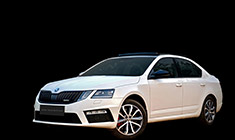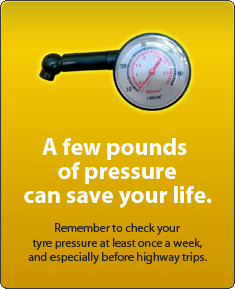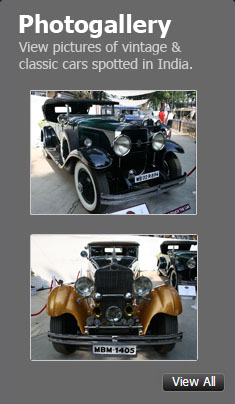News
Run-flats or tubeless tyres? Which is better for my BMW 330i
BMW strongly recommends RFTs for the G20 3 Series.
BHPian itwasntme recently shared this with other enthusiasts.
The stock Bridgestone Turanza T005 225/50/R17 Run Flat Tyres (RFT) are totally shot at 20,000 km. Tread depth is ~2.2 mm, which is just about legal.
The conundrum faced by all BMW owners is what to go for? RFT or non-RFT, i.e. normal tubeless? BMW globally strongly recommends RFTs for the G20 3 Series.
In India, RFT ideally is Michelin Pilot Sport 3 Zero Pressure (P3ZP). Tubeless is Michelin Pilot Sport 4 Silence Tuned (PS4ST).
PS5 tubeless has been launched as well but not in India yet.
Ideally, I would have loved the Pilot Sport 4S or the Pilot Super Sport, but neither are available in 17".
RFTs are harsher, noisier & with lesser life but offer a significantly safer experience during tyre burst (catastrophic deflation) situations + allows some emergency driving even when fully deflated. RFTs are expensive at ~Rs 19K and tubeless is Rs 13K.
Tubeless is cheaper & offers a far more supple ride + handling. But BMW routinely threatens to invalidate the warranty should anything happen to the suspension etc.
Confused!
Here's what BHPian iliketurtles had to say on the matter:
Go for the tubeless, eyes shut. It's not a contest, IMO. The tubeless tyres are not cheaper, they're more comfortable, can offer better outright grip and longevity; not to mention the ability to be repaired to an extent if needed. Contrast that with the potential for RFTs to commit seppuku and leave you with a narrow window to replace them, even if you can drag them along in their damaged state.
If I were you, I'd get tubeless tyres (Yokohama, Continental, or Michelins) and buy a space saver for whenever you step out for a long drive (say, to Goa!). You might not really need it more than 2-3 times over its lifetime, but you will be really, really thankful for it if and when you need it and it's handily available.
They can't / won't invalidate a suspension claim if you switch over. Just have a good relationship with your service advisor and you'll be fine. Nothing untoward here, and nothing to be alarmed about at all. Don't let anyone cow you down.
Here's what BHPian Dr.AD had to say on the matter:
I think you know my opinion since we have discussed this a few times, but I will say it here again anyway: I would recommend sticking to RFTs. The benefits are far more compelling than the drawbacks of RFTs, especially with the more modern RFTs such as the Michelin ZP series.
A significantly safer experience (as you emphasized yourself) is the key point. I do not see any reason to compromise on that.
The earlier (should I say initial generations) RFTs were harsher. Especially the Bridgestone RFTs were quite harsher and also noisy. But the Michelin ZPs are much quieter and by no means harsh. With Michelin RFTs, you get the best of both worlds - quite a comfortable ride and low noise, and all the safety benefits of RFTs.
If you do tours outside cities (which I know you do), RFTs are priceless. It is materially a superior technology. At least from my personal experience of using RFTs on my 320d for the last 50,000+ km, on all sorts of rural roads, bad roads, sometimes mild off-road, as well as smooth long national highways, I consider RFTs as indispensable.
Yes, non-RFT tubeless are cheaper. But in the grand scheme of the total ownership costs of the 330i, do you really think that even makes a difference? Especially when it comes to the most crucial aspect of driving, which is safety?
I would wholeheartedly recommend sticking to the RFTs. Especially on G20 with 17" wheels, which is not a harsh riding setup anyways. There could be arguments about non-RFTs in the context of 18" and 19" wheels on some other stiffly set up BMWs, but certainly not for a G20 riding on 17" wheels.
Here's what BHPian el lobo 6061 had to say on the matter:
Bridgestone Turanza RFT is meant to lose tread depth as soon as possible which is why BMW cars come with them. So customers keep buying them frequently.
Pirelli Cinturato P7 RFT last much longer to it. Saying from experience on X1.
Go for tubeless. RFT aren't worth it.
If touring is an aspect, go for Yokohama Earth1.
Why do BMW //M cars come with tubeless tyres if safety is so crucial?
In India majority of cars run on tubeless and before BMW we were all fine with tubeless tyres.
Here's what BHPian androdev had to say on the matter:
My vote is for top tier tubeless performance tires. I was once taking a curve over a flyover and I got really scared when the RFTs lost traction. It's possible RFTs have improved since BMW F10 days but I consider tubeless performance tires + spare tire is the safer bet for Indian roads. Better traction can handle potholes better than RFTs, etc.
The ability to drive with a completely flat tire is hardly a benefit that I value. I can manage with a tire inflator in 99% of the cases if I see a loss of pressure. A spare tire is always an option if things get worse. As such RFT can only get you to the next tire shop which could be very far off.
Catastrophic tire blowout. This is where RFTs can offer an advantage in safety. However, RFTs blow out more often than tubeless tires when they hit potholes which is the most common cause of a sudden blowout. In fact, most BMW owners switch to tubeless tires after getting tired of replacing damaged RFTs. If you maintain recommended tire pressure and change tires within 5-6 years, I would say the risk is very minimal with tubeless tires. I am not talking about low profile tires of a sports car but regular touring cars.
In the end, I consider the constant need for traction to be of a higher safety concern than an improbable tire blowout.
Check out BHPian comments for more insights and information.






















